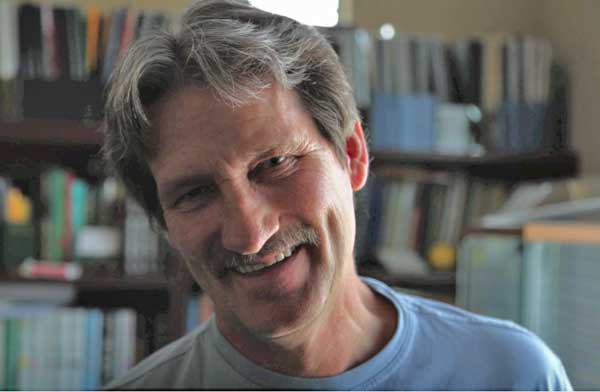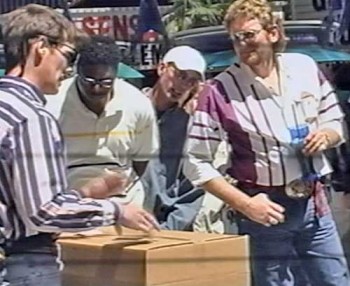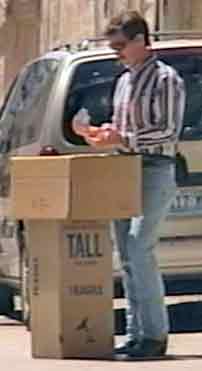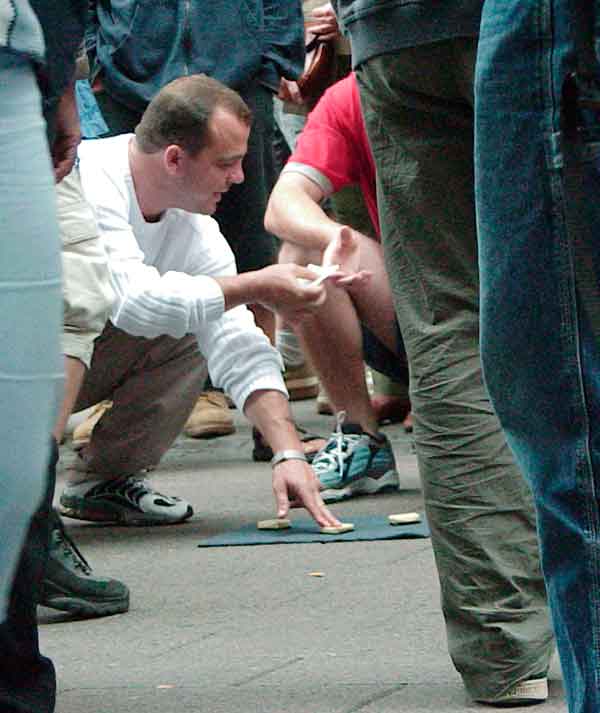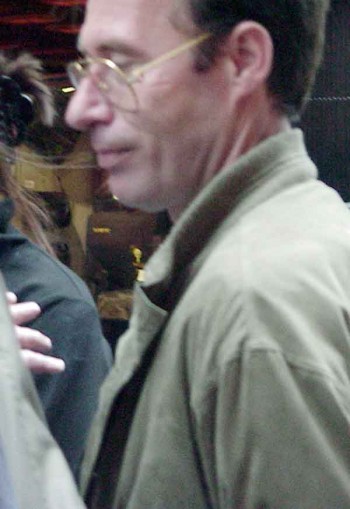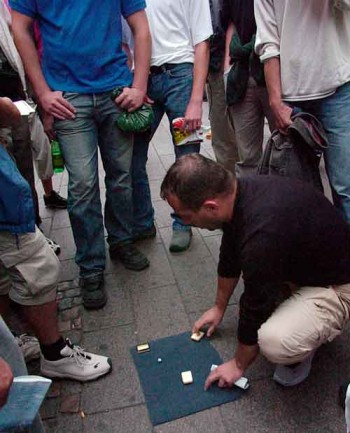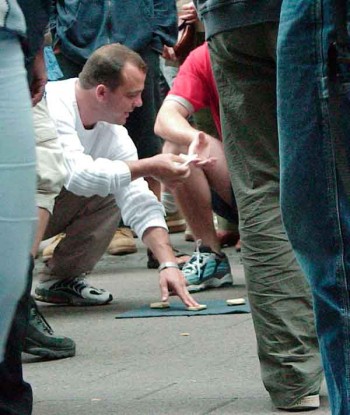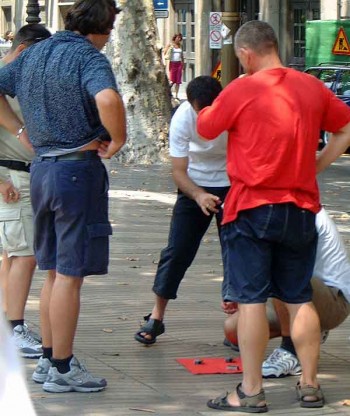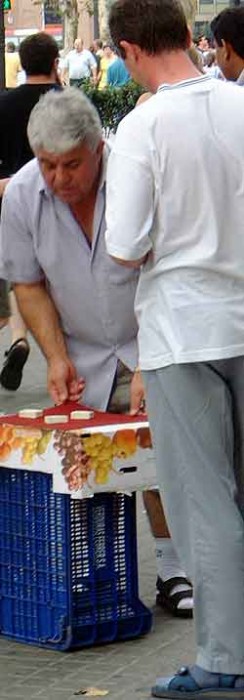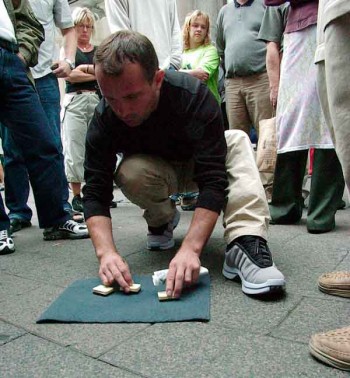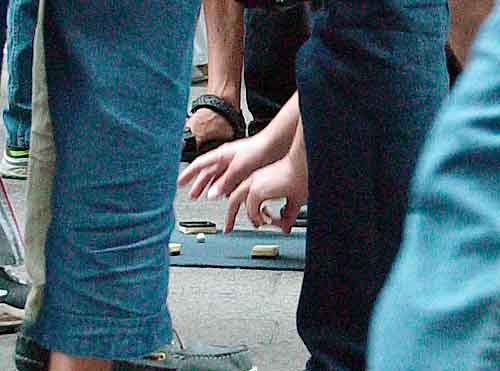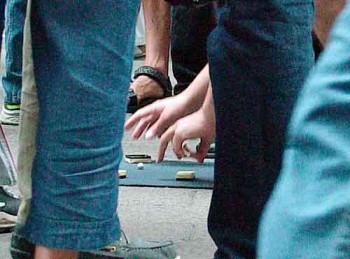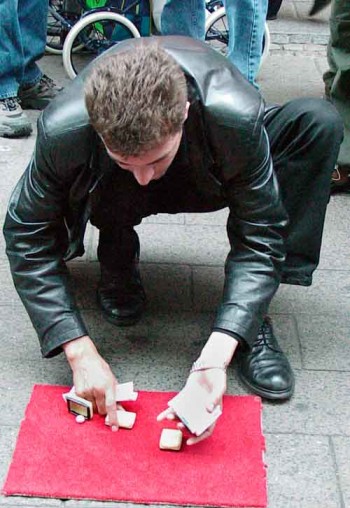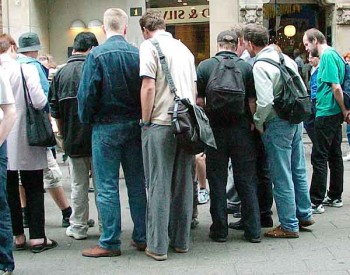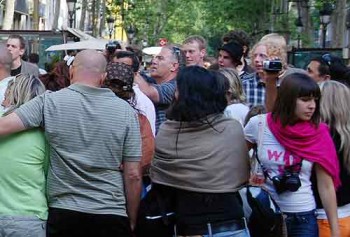
A year ago, psychic swindler Rose Marks was sentenced to more than ten years in federal prison for fleecing clients of her fortune-telling business out of more than $17.8 million. She was 62 years old; she and her family had built a network of psychics, many of whom worked under the professional name Joyce Michael in Ft. Lauderdale and New York City.
One of Rose Marks’s best scams was to “see” the awful (and outrageously convoluted) future of a client, then solicit millions of dollars from the client, bit by bit, in order to perform rituals over the money before returning it. Except, the money was never returned.
At trial, victims testified that Marks “exploited them during vulnerable times in their lives. Victims said the women of the psychic’s family were masterful in their ability to use people’s spiritual or religious beliefs to get them to hand over money and other valuables.”
I always thought psychics had a “gift.”
Turns out, no. They just go to psychic schools. Or seance schools. Or clairvoyant colleges. These institutions have complete curricula of course study in, uh… conning. Courses called Unfoldment into Mediumship, Using Past Life Information in Present Time, Applying Clairvoyant Tools in the Psychic Playground, Trance: How to Sit for its Development, and So You Want to be a Medium are a small sampling from the few psychic schools I surveyed.
Rose Marks is infamous enough to have her own Wikipedia page, and lucky enough to have been trained by her own mother in the Gypsy tradition. She began her psychic career by age nine and later trained her own daughter.
If you don’t have the benefit of maternal training, there are psychic schools. All of them offer comprehensive instruction from beginner to advanced levels.
Psychic Schools
In the class called Stepping into Mediumship at MontClair Metaphysical School in New Jersey, the focus is learning how to “contact someone on the Other Side and to provide proof of their identity, personality and proof of life.”
Proof of life? The “Other Side” means the dead, right? So they’re teaching students how to contact the dead. And they must really teach that—otherwise the school is a sham.
Next, the students are taught how to prove they’ve contacted the correct dead person. Hmmm… mistakes can happen. Kind of like getting your neighbor’s mail in your box. Oops. But it’s the last bit that confuses me most: students are taught how to provide “proof of life.” Of a dead person? Is there life on the “Other Side”? From my perspective then, as an afterlife-nonbeliever, the school teaches how to scam. It is a school of scams, a college of cons, if I comprehend the concept correctly.
Or perhaps I need spiritual help.
Just last month, Psychic Gina was arrested in Fort Collins, Colorado, for bilking $37,000 from a client, with the collusion of her accomplice husband. Psychic Gina Marks is a member of another Marks family’s fortune-telling business; if and how they are related to Rose Marks is unknown.
Who would pay a psychic thousands of dollars for aura-cleansing, curse-lifting, love-finding, or to get through the ordinary difficulties of life? Usually those desperate in the areas of love, loss, health, or career. In the usual progression, the victim visits a psychic storefront for an inexpensive palm reading. Talented fortune-tellers assign homework to their clients, and persuade them to return repeatedly for convoluted rituals that escalate in price. Often, the psychic promises that the funds will be returned when the client’s problems are solved. Countering the failure of promised results, psychics convince clients to return by threatening certain catastrophe, calamity, and misfortune.
It is these advanced fortune-making skills I’d like to read about in the psychic schools’ syllabus: the inveigling, up-selling, cold-reading, deceit, and trickery. Which classes teach those vital skills? What about marketing, costuming, decor, and special effects?
The Psychic School in northern California offers many classes, all by telephone. One is Create Magic and Miracles. Is that the one in which you learn how to make teacups tip over and tables float? Most classes are $200, or you can take the two-year Teachers Program for $4,800. The Psychic School’s site carefully describes each course as self-healing, self-improvement, self-knowledge, and self-awareness. You study to be a psychic in order to read only your own chakra, energy, and dead people, right?
See your money-making abilities skyrocket
However, the Psychic School does point out that “with the development of your clairvoyant abilities, the decisions through which you create your life come with ease, your creativity and money-making abilities skyrocket….” I take that to mean that as a graduated “psychic” (the Teachers Program ends with a “Psychic School Certificate of Graduationg” [sic], there’s no end to the creativity you can use and fees you can charge to scam your clients. Becoming a clairvoyant, you will “create a life filled with insight, creativity, and miracles.” Sounds great!
Let’s have a look at the Berkeley Psychic Institute’s Clairvoyant Training Program, which the institute also refers to as “psychic kindergarten.” It must be child’s play! But no. It’s a two-year, four-phase program of intensive learning and “hands on training from high caliber gifted psychics,” and concludes with “Uncovering your deepest challenges, moving through the fire and slaying the dragons.”
Berkeley Psychic Institute operates the DejaVu Psychic Hotline, where graduates can get instant employment doing telephone and email readings. Email readings? Yes, for $25, one can order an “Email Trance Medium Channeled Healing.”
“We do not consider ourselves as fortune tellers. We are fortune creators,” says the DejaVu Psychic Hotline website. Whose fortunes are being created?
Arthur Findlay College, pictured above and about an hour north of London, calls itself “The Worlds Foremost College for the Advancement of Spiritualism and Psychic Sciences.” Not only can one study mediumship, but also trance mediumship, in which “you will be connected to spirit working with spirit and supported by spirit.” Sounds complicated. And that is the clearest line in the entire course description. Is that an example of the obfuscation taught in the institute? Vital skill for a clairvoyant.
Perhaps the most important course for a psychic medium is Mediumship – Polish Your Performance. Since mediumship is learned—not an innate gift—one must study and practice to become convincing when channeling a spirit from the Other Side. This is “essential for customers not only to return but recommend you to others,” the Arthur Findlay College site says. I’m guessing there’s some overlap with trance mediumship. Arthur Findlay College is international and holds week-long sessions in a multitude of languages including Japanese, Swedish, Italian, Norwegian, German, French, and Finnish. It even markets a course especially for senior citizens.
What do Psychic Schools cost?
What does it cost to become a clairvoyant? A basic week-long course at Arthur Findlay College, say Mediumship & Spiritual Development, costs £570 (about $845) with room and board, double occupancy. Add £9 per person if you want a room with your own bathroom. With more than 80 courses available, a wannabe-psychic can spend a pretty penny.
But everyone knows that a solid education leads to a solid career. Just a few years ago, Psychic Michelle Morgan, of Tarzana, California, raked in almost a million from a single client, a young man whom she determined was suffering from a love curse. Psychic Michelle was patient; she kept her 25-year-old mark dependent on her rituals for two years, urging him to borrow more and more money to fund his psychic sessions. The skills she honed allowed her to entrap and ensnare her victims and exploit them for much more than they were worth. Like all those in her field, silver-tongued Psychic Michelle’s talent was unctuous smooth-talk, glib persuasion, and creative conning. Presumably, the 25-year-old million-dollar-client wasn’t Psychic Michelle’s only client.
So what does a clairvoyant college curriculum really teach? How does an institute prepare a student medium for a career in clairvoyance? Does it really teach curse-lifting, money-purifying, and soul-swapping? Are the students taught how to scam and con their clients? Or are the students themselves scammed by the schools?







